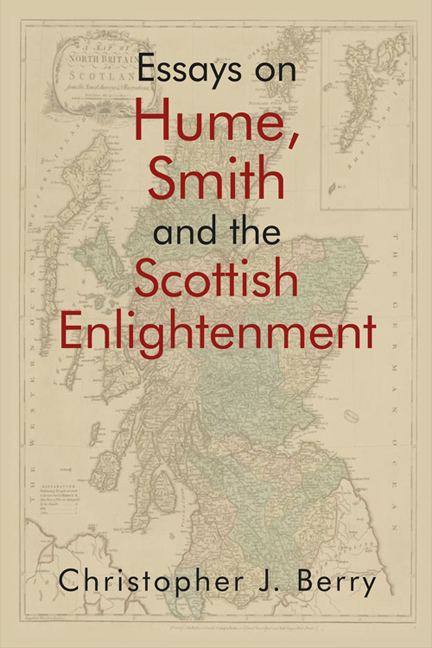Introduction to Part II
Published online by Cambridge University Press: 06 May 2021
Summary
The essays here exemplify two general characteristics of my reading of Hume. They take a robust view of his account of human nature. I take him at face value as a strong universalist and thus run counter to many other scholars who take a softer approach. I happen to think a universalist view is more right than wrong but that does not mean that Hume's view should be sanitised. His prejudices and cultural assumptions should not be wished away – le bon David would not, I surmise, be altogether welcome in contemporary polite society. The second characteristic, which is to a large extent related to the first, is the emphasis on his ‘modernism’. This is less about his antipathy to ‘old-time religion’ – powerful a sentiment though that is – than, with the exception of its literature, his thoroughgoing disparagement of classical thought.
Largely as a consequence of these two characteristics, these essays pay relatively little attention to the Treatise (Chapter 10 is an exception, but even there the focus is on an aspect of the book that has not garnered extensive commentary). The major reason for this focus is that I covered Hume's account of justice in my book (Berry 2009b Ch. 2, partly reprised in Spanish in Berry 2009c) along with, more systematically, his view of sympathy. I have treated Hume's account of convention in another essay (Berry forthcoming b), which for contractual reasons preclude its conclusion in this collection. The one new essay (Chapter 15) reflects some cognate interests of mine but its argument is in line with the other components of this part of the book.
- Type
- Chapter
- Information
- Publisher: Edinburgh University PressPrint publication year: 2018



